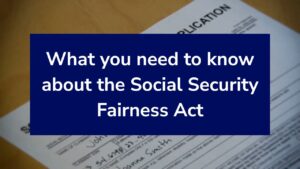Filing taxes is a critical responsibility for individuals and businesses alike. However, many taxpayers make errors that can lead to processing delays, IRS penalties, or missed deductions. Understanding these common mistakes and taking proactive measures can ensure a smooth tax-filing experience.
1. Incorrect Personal Information
One of the most frequent errors is providing incorrect personal information such as Social Security numbers, names, or bank details. These errors can lead to rejections and delays in processing returns or refunds.
How to Avoid: Double-check all personal details before submitting your return. Ensure that names and Social Security numbers match the records with the Social Security Administration (SSA). If you are filing electronically, verify your bank account details to avoid misdirected refunds.
2. Filing Under the Wrong Status
Choosing the incorrect filing status can impact your taxable income and potential deductions. Common mistakes include selecting “Single” instead of “Head of Household” or vice versa.
How to Avoid: Review IRS guidelines to determine the correct filing status. If unsure, use tax software or consult a tax professional to ensure accurate classification.
3. Misreporting Income
Failing to report all taxable income, including freelance work, side gigs, or investment earnings, can trigger IRS scrutiny. The IRS cross-references income reported by employers, clients, and financial institutions.
How to Avoid: Keep track of all income sources, including W-2s, 1099s, and other financial statements. Use an accounting system or tax software to record income accurately.

4. Forgetting to Claim Eligible Credits and Deductions
Taxpayers often overlook valuable tax credits and deductions such as the Earned Income Tax Credit (EITC), Child Tax Credit, or deductions for student loans and medical expenses.
How to Avoid: Research available credits and deductions that apply to your situation. Tax software or a tax professional can help identify potential savings opportunities.
5. Mathematical Errors
Manual miscalculations can lead to incorrect tax liability and potential penalties.
How to Avoid: Use tax preparation software to automate calculations and reduce errors. If filing manually, double-check all computations before submission.
6. Not E-Filing or Filing Late
Paper returns take longer to process and are more prone to errors. Filing after the deadline can result in penalties and interest charges.
How to Avoid: Opt for electronic filing to ensure faster processing and accuracy. Mark tax deadlines on your calendar and file early to avoid last-minute stress.
7. Overlooking Tax Payments or Estimated Taxes
Self-employed individuals and freelancers often forget to make quarterly estimated tax payments, leading to penalties.
How to Avoid: If self-employed, calculate and submit estimated tax payments on time (April, June, September, and January). Use IRS payment options like Direct Pay or the Electronic Federal Tax Payment System (EFTPS).
8. Not Keeping Proper Records
Failing to maintain receipts, expense logs, and financial statements can create issues during audits or when claiming deductions.
How to Avoid: Organize and store tax documents for at least three years. Digital tools and apps can help manage financial records efficiently.
9. Ignoring IRS Notices
Ignoring correspondence from the IRS can escalate minor issues into major tax problems.
How to Avoid: Read and respond to IRS notices promptly. If unsure, consult a tax professional before taking action.
10. Forgetting to Sign and Date the Return
A simple yet common mistake is failing to sign and date paper tax returns, rendering them invalid.
How to Avoid: Double-check all paperwork before submission. When e-filing, use an IRS-approved electronic signature.
Conclusion
Avoiding these common tax mistakes can save time, money, and stress. By double-checking information, meeting deadlines, and utilizing tax software or professional help, you can ensure a smooth tax-filing process. Always stay informed about tax law changes and maintain organized records to maximize returns and minimize risks.





